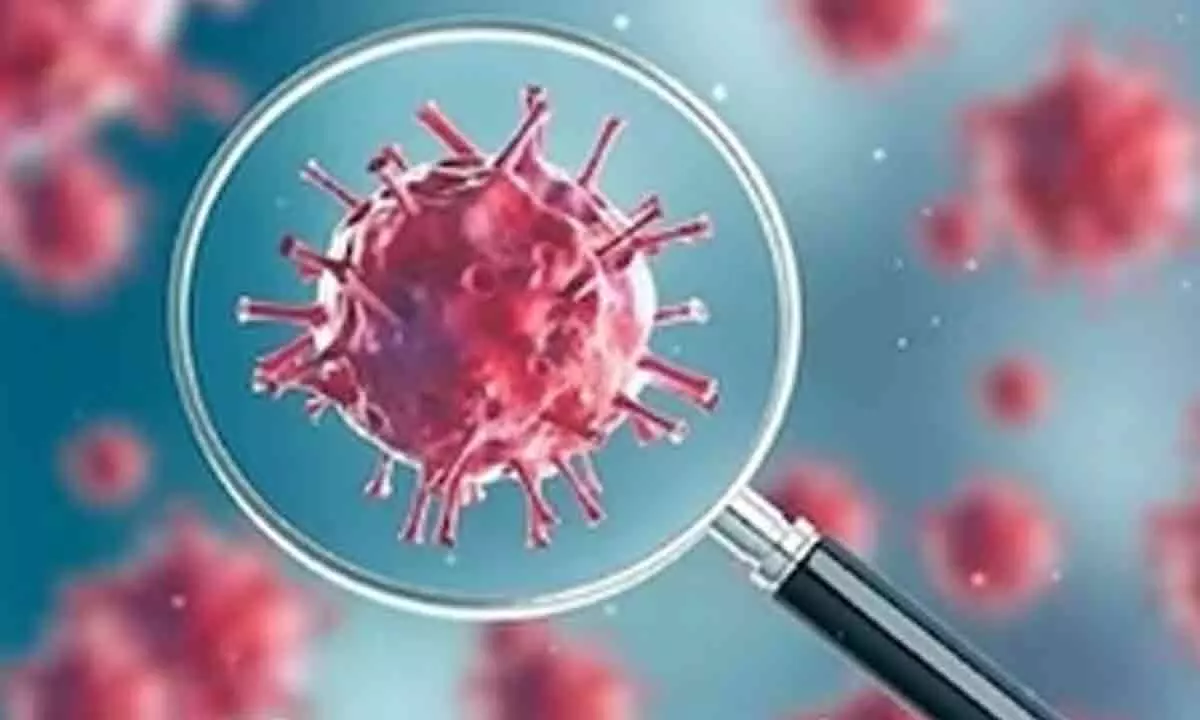Omicron breakthrough infection prevents serious illness from JN.1: Study
Share :

The human immune system that encountered breakthrough infection by the Omicron variant acquires enhanced immunity against future versions of the Omicron, including the currently circulating JN.1, according to a study.
Seoul : The human immune system that encountered breakthrough infection by the Omicron variant acquires enhanced immunity against future versions of the Omicron, including the currently circulating JN.1, according to a study.
A team of South Korean scientists from the Institute for Basic Science (IBS) announced that the memory T cells that form during the Omicron breakthrough infection respond to subsequent strains of the virus, and protect against severe disease from any future Covid variant.
“This finding gives us new perspectives in the new era of Covid endemic. It can be understood that in response to constant emergence of new virus variants, our bodies have also adapted to combat the future strains of the virus,” said JUNG Min Kyung, Research Fellow, who led the research.
Emerging in late 2021, the SARS-CoV-2 Omicron variant had drastically increased transmissibility in comparison to its predecessors, which quickly allowed it to become the dominant strain in 2022. New strains of Omicron have kept emerging ever since then.
Starting with BA.1 and BA2, BA.4/BA.5, BQ.1, XBB strains, and more recently JN.1 strains were among the new strains of the Omicron variant. This has led to widespread breakthrough infection despite vaccination.
After becoming infected or vaccinated, the body creates neutralising antibodies and memory T cells against the virus. The neutralising antibody serves to prevent host cells from being infected by the virus. While memory T cells cannot prevent the infection, they can quickly search and destroy infected cells, preventing the viral infection from progressing into a severe disease.
To find out the changes that occur in our body’s immune system after suffering from post-vaccination breakthrough infection, the team focused on the memory T cells that formed after the Omicron infection.
The previous studies on the Omicron variant have mostly focused on vaccine efficacy or neutralising antibodies, and the research related to memory T cells has been comparatively lacking.
The team selected patients who suffered and recovered from BA.2 Omicron breakthrough infection in early 2022 and conducted studies on their memory T cells, specifically in their ability to respond to various Omicron variants such as BA.2, BA.4/BA/5, and others.
Their immune cells were separated from the peripheral blood of the subjects, and the memory T cells' cytokine production and antiviral activities in response to various spike proteins from different variants were measured.
The results, published in Science Immunology, showed that the memory T cells from these patients showed heightened response against not only the BA.2 strain but the later BA.4 and BA.5 strains of Omicron as well. By suffering from breakthrough infection, these patients' immune system was strengthened to combat future strains of the same virus.
The research team also discovered the specific part of the spike protein which is the primary cause of the observed enhancement in the memory T cells. These results show that once a person undergoes breakthrough infection by the Omicron infection, it is unlikely for them to ever suffer severe Covid-19 symptoms from the future emerging variants.
“This new finding can also be applied to vaccine development. By searching for common features among the current dominant strain and emerging new strains of viruses, there may be higher chances to induce memory T cell defences against the subsequent variants,” said SHIN Eui-Cheol, Director of the Center for Viral Immunology.













